
15 minute read
Home News
Duchess’s health in peril after miscarried twins
The Royal Family remains concerned about the ‘precarious’ health of the Duchess of Clarence two months after she miscarried twins who would have taken a leading place in the line of succession to the throne.
Advertisement
The death of two sons at Bushy Park in April was the latest misfortune to befall the duke and his wife. In 1819, a baby girl lived only a few hours, and another child miscarried, while a daughter, Elizabeth, died aged three months in 1821. Princess Adelaide is recuperating with Prince William at Walmer Castle in Kent, at the invitation of the prime minister, who is also lord warden of the Cinque Ports. If the duchess’s health is good enough, they are expected to go to her native Germany for the summer. The King’s brothers, the dukes of York and Clarence remain first and second in line to the throne, followed by Princess Alexandrina Victoria of Kent. The East of England has seen the most serious protests, but these have not yet reached the seriousness of the rioting in 1816 in Littleport and Ely. However, two Waterloo veterans were executed in Norwich in April for arson after machinebreaking attacks in February.
Recession hitting hard in English countryside
The government is under renewed pressure to do more to ease the plight of farmers and rural workers affected by the crisis in the countryside.
The number of petitions to Parliament about agricultural distress shows little sign of decreasing, with 30 received in May, and seven more this week. One from Kent is not unusual in linking the issue with the need for reform of the way MPs are elected. Observers say the rural economy is facing a series of challenges which have combined to present problems for both farmers and landlords, and agricultural workers and their families. But their interests are not necessarily the same. Prices of crops have slumped since the end of the Napoleonic wars, with wheat, barley, oats, beans and peas selling for a third of their 1812 prices, and an even bigger drop for rye. Wool and livestock prices are also in decline. This has led rural employers to cut back on numbers of servants and labourers, and reduce wages. On the Holkham estate in Norfolk, owned by the agricultural reformer and Whig MP Thomas William Coke. Rent arrears have risen ten-fold in three years, while reports from Sussex say it is proving hard to attract new tenant farmers. This 'perfect storm' of rural problems has been compounded by the drought in 1818, heavy summer rains last year, a brief glut in yields, and the difficult transition from a war to peace economy. Some critics are also targeting the 'Corn Laws' passed by the Tory government in 1815. These tariffs and trade restrictions are being blamed for keeping food prices high, and negatively impacting trade with Europe. The legislation has blocked the import of cheap corn, even when food supplies are short.
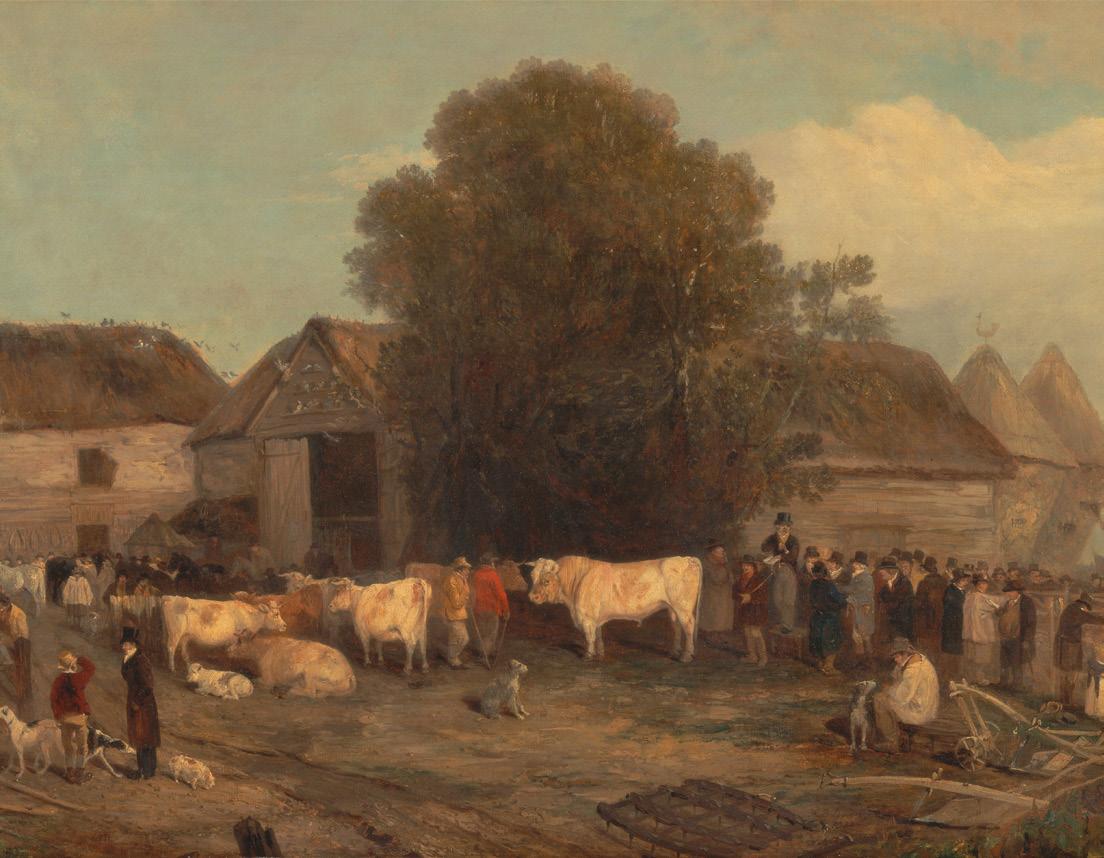
THE FARM SALE (1820), BY RICHARD BARRETT DAVIS
London's new church
The most expensive new centre for worship In London since the re-building of St Paul's Cathedral after the Great Fire of London is complete. St Pancras New Church cost £76,679 and can seat 2,500 people. It will serve an increasing population near Euston Road and in the well-todo district of Bloomsbury. >Resources and further reading
Essex and Wiltshire stately homes face sell-off after cash crises
The future of two of England's grandest private homes is in doubt, with their owners struggling to overcome big financial problems.
An auction of the contents of Wanstead House in Essex has begun. Thousands flocked there in May to see the property, and items to be sold, including furniture, glass and chinaware, books and sculptures. The house was left to teenage heiress Catherine Tylney-Long in 1805. After marrying Tory politician William WellesleyPole, they spent heavily on home improvements. Mr Pole-TylneyLong-Wellesley, who doubled his already double-barrelled surname when he married, has run up big debts on carriages, horses, entertainment and other women. He borrowedо£32,000 to secure election as MP for Wiltshire in 1818, but could not afford to stand in the 1820 election and fled to France to escape debtors. William Beckford financed the lavish transformation of Fonthill Abbey between 1795 and 1813 from his inherited income as a plantation and slave-owner in Jamaica. But Mr Beckford’s attempts to avoid a sale appear to have failed and he may also have to auction off the contents of his Wiltshire home. >Resources and further reading
Peterloo death toll rises to 18
The number of lives lost following the violent dispersal of the prodemocracy meeting in Manchester almost three years ago has risen to 18.
William Bradshaw, from Whitefield, south of Bury, suffered a deep sabre wound to his head after volunteer and regular soldiers on horseback rode into a crowd at the meeting at St Peter’s Field. Local media say he was trodden underfoot as the rally was broken up. He died of his injuries on 29 April. More than 600 people were injured, in addition to the 18 dead, when cavalry broke up the Manchester rally as it was being addressed by Henry Hunt. The violence against unarmed demonstrators led to an autumn of protests.
Gaol baby for radical Carliles
The wife of the editor of the radical Republican magazine has given birth to a girl at the Dorset prison where the couple are serving sentences for seditious and blasphemous libel.
Richard Carlile said his wife Jane had a painful pregnancy and lingering labour because of being confined to a single room at Dorchester gaol. The baby will be named Hypatia, after the female philosopher of the late 4th and early 5th centuries. Richard Carlile, jailed for three years in 1819, is editing the paper from their cell. Jane Carlile then handled production in London until she was jailed last year. His sister Mary took over, then she too was jailed. Over 150 people connected to the magazine have been imprisoned. > 1822's People
No freedom or pardon for Hunt
MPs reject move to free ‘Orator’ as Peel signals no change in Tory stance.

HENRY HUNT
It now looks certain that Henry Hunt will serve the full prison sentence imposed on him for his role in the events at St Peter’s Field in Manchester in 1819.
An attempt by Radicals and progressive Whigs to free ‘Orator’ Hunt from prison in Somerset with more than six months left of his 30 month sentence was defeated in the House of Commons by 223 to 84. The move was led by Radical MP Sir Francis Burdett (Westminster). He said that the sentence imposed in 1820 was one of great severity. He said Mr Hunt had been subject to ‘scandalous, degrading and disgraceful’ restrictions in what the convicted radical leader has dubbed the ‘Ilchester Bastille’. He had not been allowed his servant, his eyesight had been affected, and he had initially been put in a cell with a half-witted rogue. The Home Secretary, Robert Peel (Oxford Univ.), said Parliament should not interfere in punishments imposed by the courts. In Mr Hunt’s case, he felt it was commensurate with the offence of sedition of which he had been convicted. Mr Peel's comments have been taken as indicating no softening of the government’s attitude towards reformers, despite the replacement of the hardline Lord Sidmouth at the Home Office in January. Earlier in the debate at Westminster, Mr Peel’s junior minister, George Dawson (Co. Londonderry), said Henry Hunt had been provided with a comfortable feather bed and had been satisfied with conditions at Ilchester gaol in Somerset. But this all changed when magistrates banned Mr Hunt’s mistress, Catherine Vince, from visiting him. Mr Dawson called their relationship ‘grossly immoral’ but cabinet minister Charles Williams Wynn (Montgomeryshire) went even further, saying that, if Mrs Vince was allowed in, magistrates could not in common fairness refuse to allow other prisoners to bring in prostitutes. Sources close to the leading reformer have insisted that he wants a full pardon, not early release, and suggest that he is unhappy that the proposal was raised. But he is said to be pleased with the support he has received from MPs on the opposition benches in his long-running dispute with the Treasury over the production and sale of his ‘breakfast powder’. This grain-based drink was marketed as a cheap alternative to highly-taxed coffee in a move by reformers to hit government income in protest at the events in Manchester in August 1819.
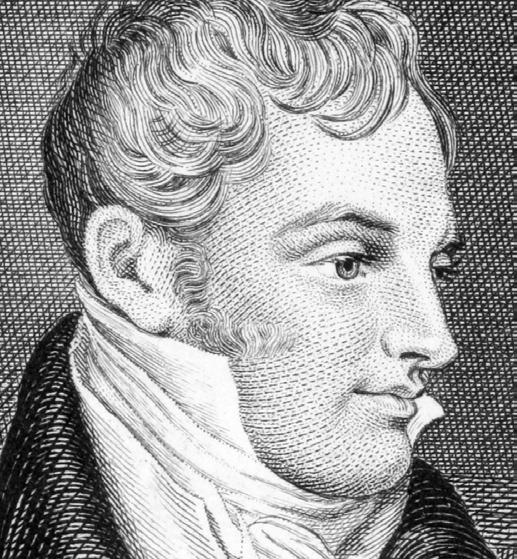
RUSSELL SEES HOPE IN DEFEAT
Best pro-reform vote in decades
Campaigners for the reform of Parliament say they are encouraged, despite losing a vote in the House of Commons on 29 April by more than 100.
MPs voted 269-164 against a Whig call, supported by Radicals, but this was the biggest vote for reform since 1785. Proposing change, the rising Whig star and moderate reformer, Lord John Russell (Huntingdonshire), said the Commons no longer had ‘the esteem and reverence of the people’ and stubborn resistance to reform would lead to disaster. Lord John said 100 seats should be re-allocated from small and sometimes corrupt boroughs to larger towns and counties.
Tories accused over press advertising
Ministers have again been accused of placing lucrative official advertising in papers that back the Tories, ignoring publications that do not.
Radical MP Joseph Hume (Aberdeen) complained that the government had failed to provide data on which papers were used for advertising. Mt Hume said they were ignoring England’s best-selling paper, the Times, thefirst to report the Peterloo massacre. The Chancellor, Nicholas Vansittart, has insisted that no instruction has been issued not to advertise in any particular paper. But the Times says an official toured government offices with a verbal instruction to that effect.
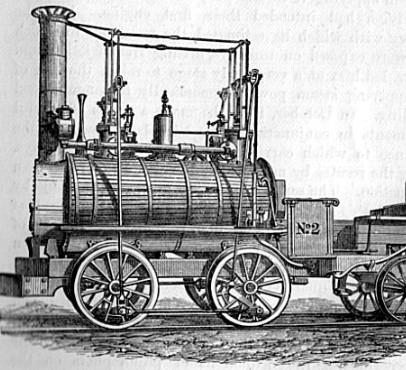
This is what a locomotive operating on the new railway line in the north-east of England could look like. It was pioneered by the new railway’s engineer, George Stephenson, to haul wagons carrying coal at Killingworth colliery, north of Newcastle. The rails are 4 feet 8 inches apart, using the same gauge as at Killingworth. George Stephenson, 41 this month, is from near Newcastle. He worked in a local pit from the age of 10. The family was too poor for him to go to school and he only became literate at the age of 18, after paying to study reading, writing and arithmetic at night school. In 1815, he developed a safety lamp for use in mines, rivalling that invented by Sir Humphrey Davy.
PICTURE:Samuel Smiles, Lives of the Engineers, Project Gutenberg
Tees rail build starts, Stephenson at controls

A PLAN PUBLISHED THIS YEAR OF THE RAILWAY OR TRAMROAD FROM STOCKTON
The first rails have been laid and construction is underway of a railway or tramroad linking Stockton, Darlington and the collieries of Co. Durham.
If completed, this is set to be heralded as the first public rail service in the world. It is expected to be heavily used to carry coal to and from mines in Co. Durham. Original plans were for the line to be horsedrawn but it is understood that the committee behind the plan now want the option to use mechanical locomotives, and to carry passengers. This would require enabling legislation passed in Parliament last year to be amended. The case for using locomotives has been pushed by George Stephenson, an experienced engineer appointed in January. He has worked on transporting coal at Killingworth pit near Newcastle and designed a colliery railway at Hetton in Durham. This service is due to open later this year. The first rails were laid on 23 May by the Stockton and Darlington company’s chairman, Thomas Meynell. Church bells rang and bunting was flown as Mr Meynell and civic leaders went to St John’s Well in Stockton for the inaugural ceremony. A royal salute was fired, and the national anthem played. Up to 300 construction workers carrying spades and axes joined the procession, and were fed with bread, cheese and ale in the afternoon before official guests dined in the evening.
ROUTE MAP (TOP): Science Museum Group Collection © The Board of Trustees of the Science Museum >Resources and further reading
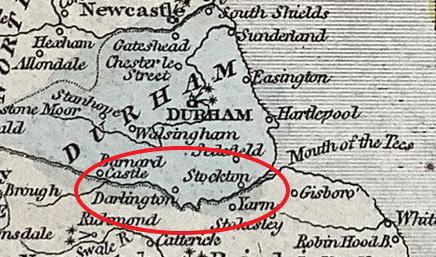
Whig Stuart walks free after killing political opponent in duel
Scottish Whig politician James Stuart has been sensationally cleared of a murder charge after shooting dead former Tory MP Sir Alexander Boswell in a duel in Fife.
The jury at the High Court in Edinburgh returned its verdict at 5am after a single day’s evidence, without even leaving the courtroom. Crowds that remained in Parliament Square throughout the night loudly cheered the news that Mr Stuart had been found not guilty and freed. The two men had fallen out in a political row over articles published by a newspaper in Glasgow. James Stuart said they were offensive, calling him a bully and a coward. He challenged Sir Alexander, son of Dr Samuel Johnson’s friend and biographer, to a duel when he was revealed to be the author. When they met in March near Kirkcaldy, Sir Alexander Boswell deliberately fired wide, but Mr Stuart, who had never handled a gun before, hit the collarbone of his opponent, who died the next day. James Stuart fled to France to avoid being imprisoned pending a trial, but returned for the hearing. The defence said that Mr Stuart had acted under ‘a great moral necessity’ to satisfy his honour and cited legal precedents for acquitting men who killed opponents in duels.
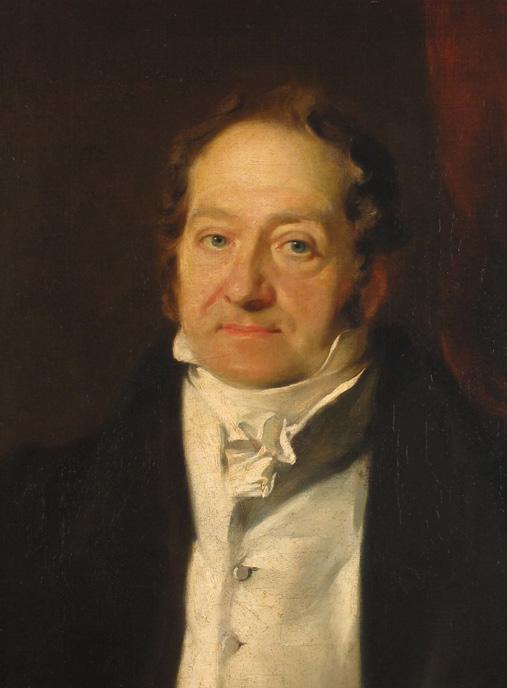
Two dukes were unhurt after abandoning a duel at Kensington Gardens, London.
The Tory Duke of Buckingham challenged the Whig Duke of Bedford over remarks he made at a county meeting in Bedford, calling him a ‘borough proprietor’ engaged in a corrupt traffic of seats in the House of Commons. Neither man aimed at the other and, when the Duke of Bedford said he meant no personal offence, they shook hands and called the duel off.
JAMES STUART OF DUNEARN
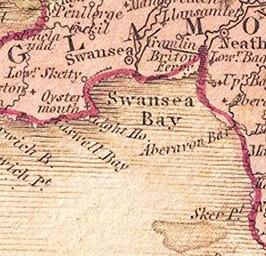
What Swansea’s visitors saw, and said
“In the neighbourhood of Swansea there are some very extensive copper works, which are situated in a hollow, and immediately about them there is not a blade of grass, a green bush, nor any form of vegetation: volumes of smoke, thick and pestilential, are seen crawling up the sides of the hills.”
Richard Ayton, A Voyage Round Great-Britain, 1813
“The volumes of smoke continually rising from the numerous and extensive works that are established here, render many parts unpleasant, if not insalubrious, even to those who live at some distance.”
John Feltham, A Guide to All the Watering and Seabathing Places, 1806.
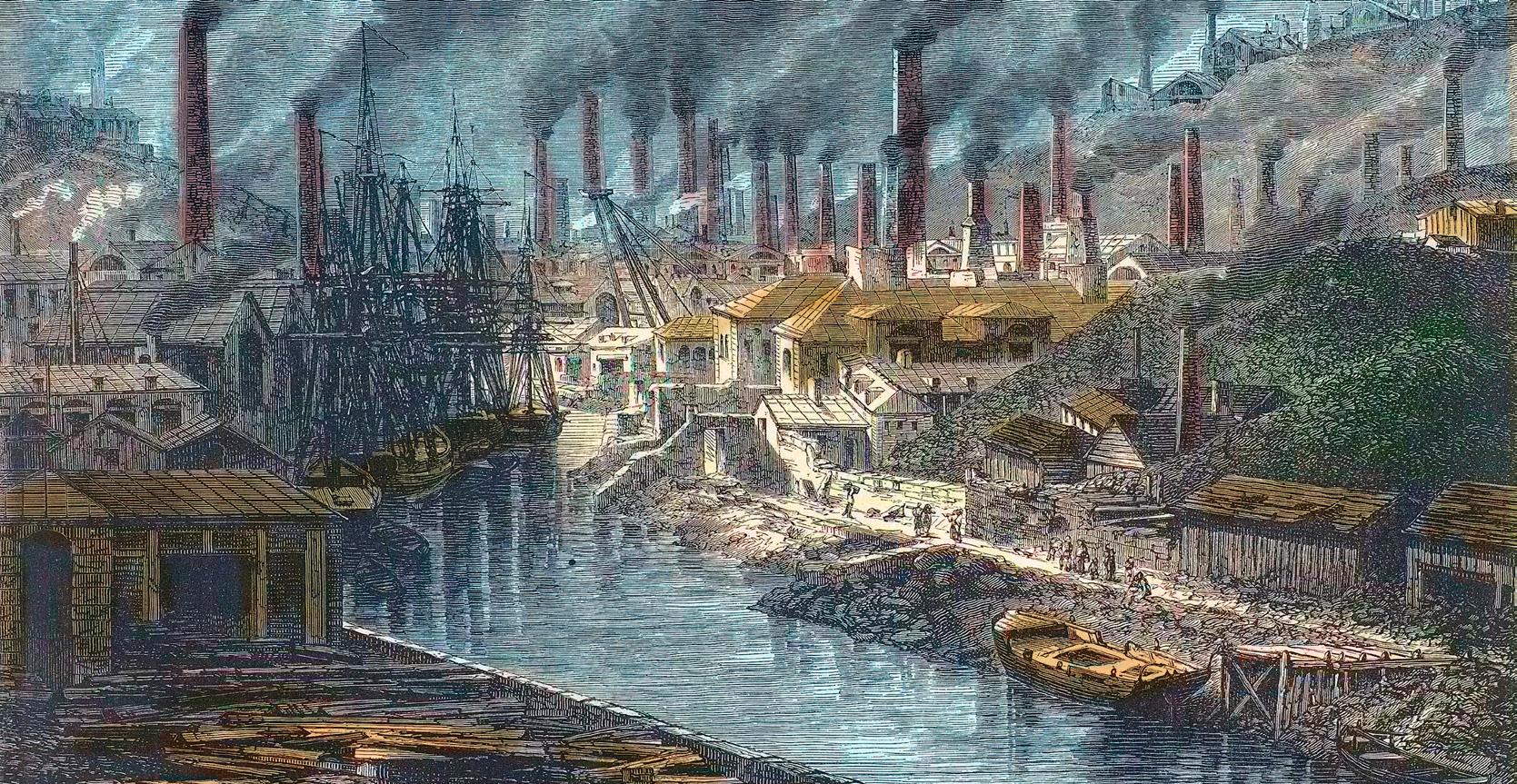
MR. VIVIAN'S COPPER PLANT IN SWANSEA, WALES (UNDATED, UNKNOWN ARTIST)
One of the country’s emerging scientists has been called in to investigate serious environmental problems in Wales’s second town.
Michael Faraday, a former aide to chemist and inventor Sir Humphrey Davy, is to visit Swansea in July at the request of copper magnate John Henry Vivian, along with Royal Society fellow Richard Phillips. Complaints are growing over the impact of copper production on the environment and the health of the town’s 10,000 residents, second only in Wales to Merthyr Tydvil. There are fears damage caused by ‘copper smoke’ could harm the town’s expansion, as it aims to stay ahead of rivals Newport and Cardiff, and harm what remains of Swansea’s reputation as a bathing resort. Reports in Welsh and London newspapers have spoken of vegetable and animal life being destroyed by arsenic and other chemicals from copper smelting. Mr Faraday saw the problem himself in 1819. A prize is on offer for ideas to tackle the problem, but critics say the owners are really concerned by the risk of legal action by their neighbours. The Vivian copperworks are among the latest to be set up in Swansea, where the first copper plant opened in 1717. The industry has boomed since the end of the Napoleonic wars, with production doubling locally in a decade, and Swansea becoming the major producer in the world’s top smelting nation. Coal comes from Welsh mines, with copper ore brought by sea from Cornwall. Civic leaders have been trying to strike a balance between industrial expansion and the town’s role as a Regency resort to compete with Bath. >Resources and further reading
News in brief: Navy sloop and packet ship lost in black weekend off Irish coast
SHIPWRECK: More than 160 people died when gales hit Ireland’s south coast in late April. All 120 crew perished when Royal Navy sloop HMS Confiance was wrecked. The vessel ran aground near Cove, Co. Cork, was re-launched but sank near Mizen Head. Four local people trying to retrieve debris from the ship also died. An estimated 45 crew and passengers died when the packet ship Albion, sailing from New York to Liverpool, went down off Co. Cork. The disaster may raise questions about the safety of the scheduled packet services carrying cargo and passengers between the UK and US. These have become popular since the Black Ball line, owners of the Albion, began operating in 1818. Gold worth о£3,000 has been retrieved, but seven crew of a salvage vessel added to the death toll a few days later. FATAL MIX-UP: The Anglican primate of All Ireland has died after a tragic accident at his London home. The Archbishop of Armagh, William Stuart, 67, swallowed laudanum which his wife thought was liquid medicinebut was wrongly issued by an apothecary. The Archbishop was buried at the family’s country estate, Luton Hoo in Bedfordshire. He was the son of the Earl of Bute, prime minister in 1762-63. EXECUTIONS: Twelve people were publicly hanged in May in England and Scotland. They died at Ilchester, Chester, Newgate (London), Jedburgh, Glasgow and Aberdeen, for offences of burglary (7), stealing in a dwelling house (2), murder (2), housebreaking (2), arson (1), rape (1). and highway robbery (1). Source:










